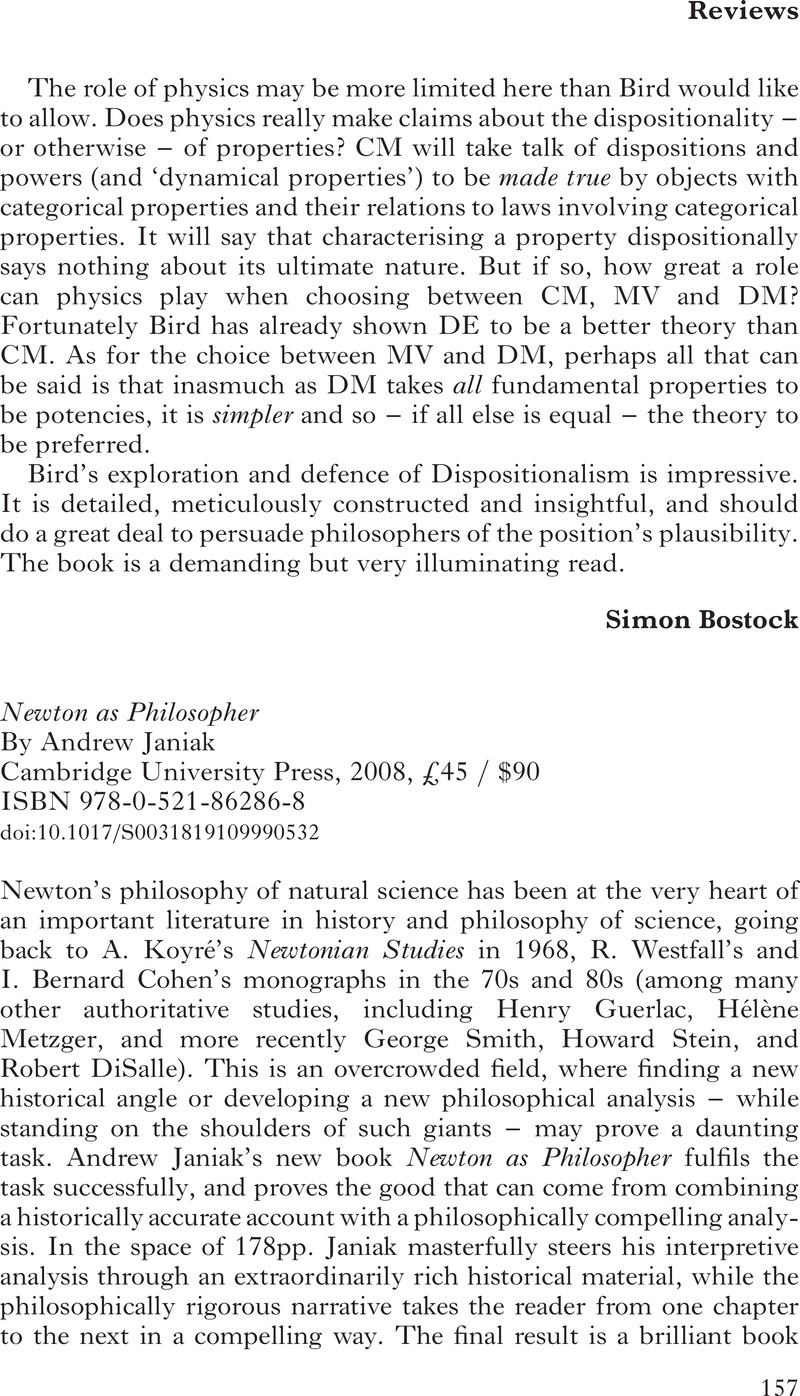Published online by Cambridge University Press: 05 February 2010

1 For example, the historian Schofield, Robert E. (Mechanism and materialism. British Natural Philosophy in an age of Reason, Princeton University Press, 1970, 15)Google Scholar offers a different definition of mechanical philosophy: ‘From the dynamic corpuscolarity of the early Principia and the first two editions of the Opticks, historically evolving from the mechanical philosophy of the seventeenth century, came the conviction of the mechanists that causation for all the phenomena of nature was ultimately to be sought in the primary particles… the various sizes and shapes of possible combinations of these particles, … and the forces of attraction and repulsion between them.’ Given this definition, Newton's dynamic corpuscolarity, i.e. his view that matter consists of corpuscles endowed with attractive and repulsive forces, originated from and, in turn, engendered a mechanical view of nature – very different from the Cartesian one – which nonetheless played a key role in the development of British and Dutch natural philosophy in the eighteenth century.